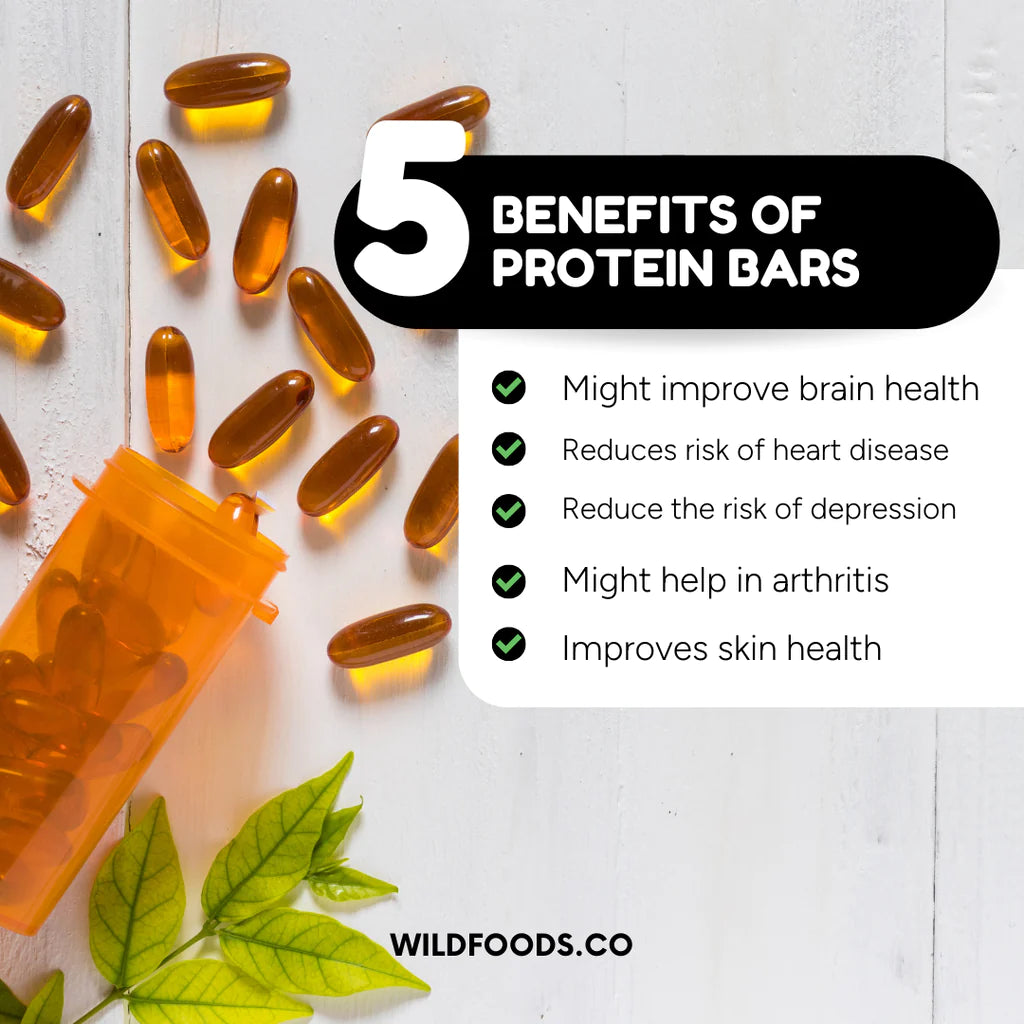Fish Oil for Heart Health: Reasons To Include It In Your Nutrition Plan

For decades, fish oil has captured the attention of nutrition researchers due to its abundance of omega-3 fatty acids. Its remarkable benefits for heart health have been a prominent area of study.
This article delves into why fish oil should be part of your nutritional plan.
Rich in Omega-3 Fatty Acids
Fish oil is abundant in omega-3 fatty acids, notably EPA (eicosapentaenoic acid) and DHA (docosahexaenoic acid), essential nutrients.
Our bodies can't produce sufficient amounts of these, making it necessary to obtain them from our diet or supplements.
Reducing Triglycerides and Cholesterol Levels
Fish oil can significantly reduce levels of triglycerides, a type of fat in your blood associated with heart disease, when present in high amounts.
It also appears to increase "good" HDL cholesterol levels, further supporting heart health.
Lowering Blood Pressure
Fish oil has been found to lower blood pressure levels, especially in people with high or borderline high blood pressure.
The omega-3 fatty acids it contains help relax and dilate blood vessels, reducing blood pressure.
Fighting Inflammation
Omega-3s in fish oil have potent anti-inflammatory properties.
Chronic inflammation is correlated to many diseases, including heart disease, and by reducing inflammation, fish oil may help mitigate these risks.
Improving Blood Vessel Function
Fish oil helps improve the function of blood vessels, promoting better circulation and potentially reducing the risk of blood clot formation, a significant contributor to heart attacks and strokes.
Supporting Mental Health and Cognitive Function
Beyond heart health, fish oil may support brain health.
Studies suggest that omega-3s can help ward off mental health issues like depression and may slow the cognitive decline associated with aging.
Promoting Healthy Skin and Hair
The omega-3s in fish oil help maintain healthy skin and hair cells, which may lead to a healthier complexion and more muscular, shinier hair.
It's another bonus of this powerful supplement.
Choosing the Right Fish Oil Supplement
Not all fish oil supplements are created similarly. Look for products that contain a high concentration of EPA and DHA.
Also, select supplements certified as free from heavy metals and other contaminants.

Frequently Asked Questions
What is fish oil and why is it good for heart health?
Fish oil is a dietary supplement that is rich in omega-3 fatty acids, specifically EPA (eicosapentaenoic acid) and DHA (docosahexaenoic acid). These fatty acids play a crucial role in heart health by reducing inflammation, lowering blood pressure, reducing triglyceride levels, and helping maintain a regular heartbeat.
How can fish oil be included in a nutrition plan?
Fish oil can be incorporated into your diet by either consuming fatty fish like salmon, mackerel, and sardines a few times a week, or by taking a daily fish oil supplement. It's important to consult with a healthcare provider to determine the right dosage for your needs.
Can taking fish oil supplements replace a diet rich in fatty fish?
While fish oil supplements can help you get your daily dose of omega-3 fatty acids, they shouldn't replace a balanced diet that includes a variety of foods. Eating fatty fish also provides other important nutrients like protein, vitamin D, and selenium.
Are there any side effects to consuming fish oil?
Fish oil is generally safe for most people when taken in recommended amounts. Some people may experience side effects such as belching, bad breath, heartburn, nausea, and loose stools. If you're considering taking fish oil supplements, it's important to discuss this with your healthcare provider, especially if you are taking other medications or have a health condition.
Is there anyone who shouldn't take fish oil?
Individuals with fish or seafood allergies should avoid fish oil. Also, because fish oil has blood-thinning effects, individuals with bleeding disorders or those about to undergo surgery should consult a healthcare provider before using it.
How does fish oil compare to other sources of omega-3s?
Fish oil is one of the best sources of EPA and DHA, the two most beneficial types of omega-3s. While plant-based sources like flaxseeds and walnuts contain a type of omega-3 called ALA (alpha-linolenic acid), our bodies are not efficient at converting ALA into EPA and DHA.
Can fish oil help prevent heart disease?
Research suggests that fish oil can help reduce the risk of heart disease by improving heart health markers like blood pressure, triglyceride levels, and cholesterol levels. However, it's important to note that fish oil is not a cure-all and should be part of a lifestyle that includes a balanced diet and regular exercise.
Is it possible to consume too much fish oil?
While omega-3 fatty acids are beneficial for heart health, consuming too much can lead to excessive bleeding or interfere with immune function. It's important to follow the recommended dosage provided by your healthcare provider or on the supplement packaging.
Can I get the same benefits from eating fish as from taking a fish oil supplement?
Eating fatty fish can provide not only omega-3 fatty acids but also a host of other nutrients beneficial for overall health. However, for individuals who do not consume fish regularly, a fish oil supplement can be a beneficial addition to their diet.
Can vegetarians and vegans get the benefits of fish oil?
Vegetarians and vegans can opt for supplements made from algae, which is a direct plant-based source of EPA and DHA. These supplements provide the same omega-3 benefits as traditional fish oil.
Interesting Facts
Fish oil is a rich source of omega-3 fatty acids, which are essential for heart health. Omega-3 fatty acids help to reduce inflammation and improve blood flow, which can help to protect the heart from disease.
Fish oil can help to lower triglyceride levels, which are a type of fat that can increase the risk of heart disease.
Fish oil can help to raise HDL cholesterol, which is the "good" cholesterol that helps to protect the heart.
Fish oil can help to reduce the risk of arrhythmias, which are abnormal heart rhythms.
Fish oil can help to improve cognitive function and reduce the risk of dementia.
Related Studies
Effects of omega-3 fatty acids on cardiovascular disease risk factors: a systematic review and meta-analysis of randomized controlled trials
This study found that omega-3 fatty acids can help to lower triglyceride levels, raise HDL cholesterol, and reduce the risk of arrhythmias.
Link: https://www.ncbi.nlm.nih.gov/pmc/articles/PMC3487077/
Omega-3 fatty acids for the primary prevention of cardiovascular disease
This study found that omega-3 fatty acids can help to reduce the risk of heart attack and stroke.
Link: https://www.ncbi.nlm.nih.gov/pmc/articles/PMC3126950/
Omega-3 fatty acids for the treatment of cardiovascular disease
This study found that omega-3 fatty acids can help to improve heart function and reduce the risk of death in people with heart disease.
Link: https://www.ncbi.nlm.nih.gov/pmc/articles/PMC3487078/
Conclusion: Boosting Heart Health with Fish Oil
In conclusion, fish oil is a potent ally in maintaining and enhancing heart health. Reducing triglycerides, lowering blood pressure, fighting inflammation, and improving blood vessel function offer several benefits for your cardiovascular system.
Fish oil could be valuable to your nutrition plan with a balanced diet and regular exercise.
🎣 Experience the health benefits of our top-quality Fish Oil. For enhanced cognitive function and cardiovascular health, click here and reel in your wellness! 🌟
Popular Articles
